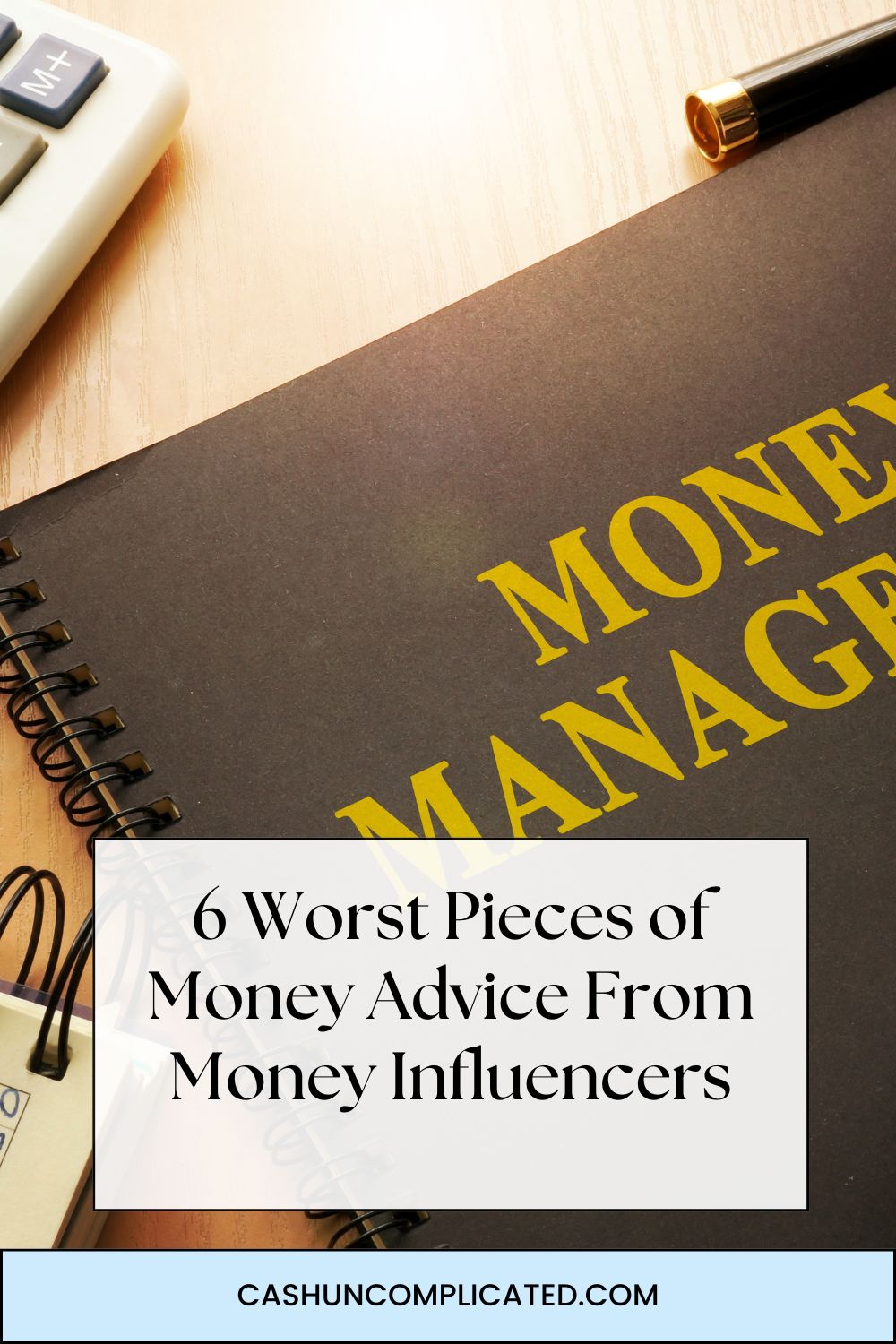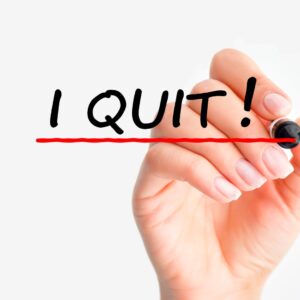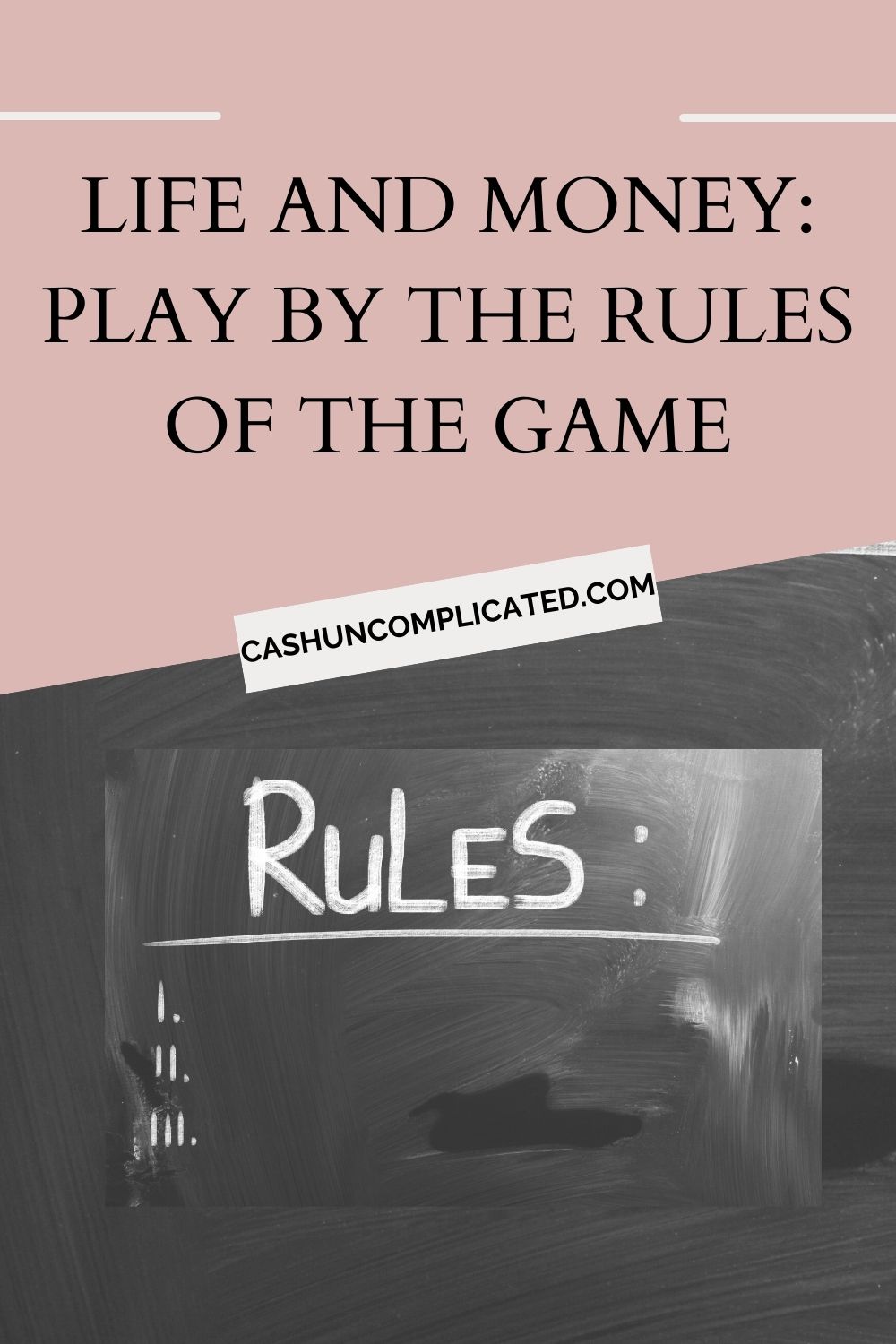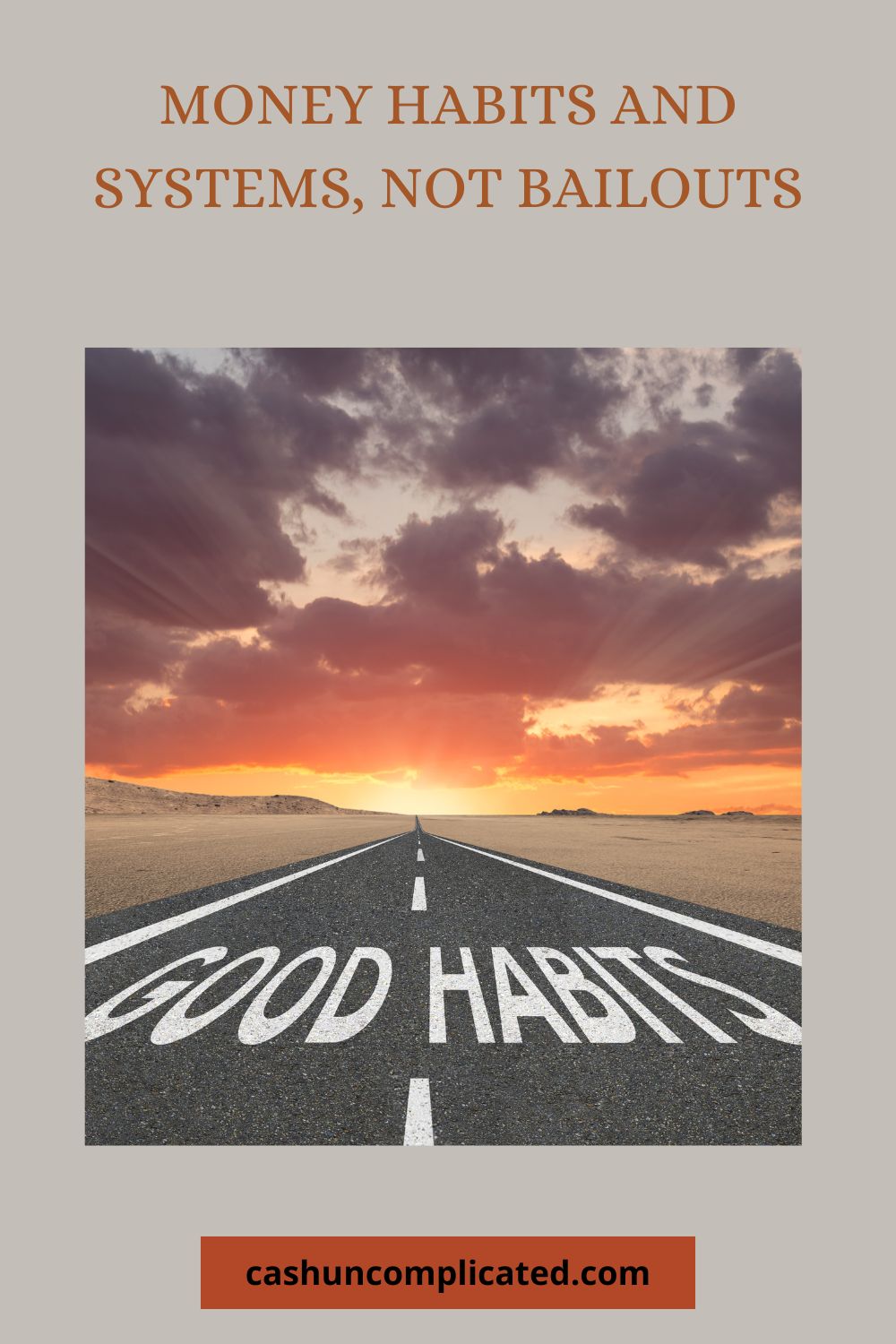“Quit your job and go all in now, follow your passion.” Words like this are spoken every day on social media and other platforms. Now, don’t get me wrong, there’s a lot of great advice online but I often cringe at some of the bad advice. This post is going to focus on the worst pieces of advice I’ve heard from money influencers.
What is a Money Influencer?
A money influencer is anyone talking or writing about money that someone will listen to. They may have a small platform of less than 100 followers or a massive one with millions of followers.
The good money influencers have years of experience and success under their belt while the not so good ones are often just making stuff up. Or regurgitating what they heard from someone else without fully understanding it.
In other words, there are some really good ones and some others that are not so good.
Why is Bad Money Advice So Dangerous?
Bad Money advice can take someone down a dangerous path. For example, someone with little money experience being told to take a big risk like pulling money from their house to buy a risky investment. Advice like that can end up very bad, amplified by someone with little experience.
Or advice to quit your job when there are no reserves and no backup. Advice like that can lead to dire consequences like having no money to pay rent/mortgage or defaulting on other obligations.
Six Worst Pieces of Money Advice
These are the six worst pieces of money advice I’ve heard over the last several years.
Number 1: Just Quit Your Job and Start a Business
“Just quit your job and start a business.” This advice has worked for some, but it’s not going to work for the masses. Then once that advice is given, people like Elon Musk, Richard Branson, or Phil Knight are cited as evidence that the advice works.
However, the chances of becoming the next Elon Musk, Richard Branson, or Phil Knight are slimmer than becoming a star professional athlete. On a much smaller scale, it’s extremely difficult to quit your line of work and immediately succeed as an entrepreneur.
Many of the overnight successes in business took years and years to get to the point where they are today. It’s just that nobody saw the work that was going on behind the curtains. The years of struggle, financial hardship, and soul searching.
My advice would be this. If you’re going to quit your job to pursue an entrepreneurial endeavor, make sure you have a proof of concept like a track record of sales. Not just people saying they’ll buy the product, but an actual record of sales.
I don’t believe that someone has to completely replace their income to quit their job, but there should be some evidence that the new endeavor is going to work, especially if you have a family or others who rely on your financial support.
For example, someone making $100k in their job doesn’t have to replace the whole thing immediately. But they should be making some money to show that it works. Even $10,000 is proof, especially if you will have more time to scale. Don’t just quit though with a plan based on hope.
Number 2: Fund Your Dream With Credit Cards if Needed
Dreamers have both a positive and negative trait: incredible belief in themselves and their abilities. Good in the sense that they will doggedly pursue their dreams. Bad in the sense that the tunnel vision to their dreams means the blinders are on to the risks.
One of the biggest risks is where the bad advice comes into play. Opening up credit cards to fund a dream/business is a recipe for financial disaster. With sky high interest rates, things can get out of control very, very quickly. One or two bad months and financial disaster can take down any good business.
Think about a scenario in which the borrower takes out a $20,000 cash advance on a credit card at 22 percent interest. There’s a couple bad months and all of a sudden that debt balloons to $25,000 to $30,000. That’s not even factoring in other debts like business or personal loans.
The credit card debt becomes a black hole that is impossible to get out of. It’s hard to pursue any dream with that kind of baggage and financial stress.
Number 3: Always Follow Your Passion
Just follow your passion and everything will turn out is terrible advice. My passion when I was a kid was baseball. I was sure that I would make it to the majors, I just had to work hard and stick with it. I was even one of the best pitchers in Little League for a season or two.
But my passion didn’t carry me much farther than that. In fact, I wasn’t even good enough to play high school baseball, much less the major leagues. Didn’t matter that it was my passion, the dream wasn’t happening.
There are lots of things I really enjoy though that I can get paid for. Following your true passion works for some people but it’s really bad general advice. The better advice is to find something you really enjoy and are good at that you can get paid for.
For example, if you’re good at design, maybe you can become a graphic designer. Or if you enjoy designing things, you can become an engineer. If you like negotiating and working with people, there are plenty of opportunities to do that type of work/start a company and get paid.
Number 4: Leverage as Much as Possible When You’re Starting Out
This is another really bad piece of advice. Leverage works if done correctly, market conditions favor the strategy, and the person using it knows what they are doing. A beginner with minimal experience and little knowledge about leverage is very dangerous.
Leverage is a double edged sword–it cuts at both ends. Used correctly, leverage can produce tremendous results. Used irresponsibly and it can bankrupt someone in a hurry. Think back to 2008 when a bunch of new “investors” were over-leveraged and lost everything.
When the music stopped, these newer investors and speculators were left without a chair. Even experienced investors got hurt during this time by leverage, so it’s something that has to be used very carefully. Starting out with no experience using leverage, is the opposite of “careful.”
Number 5: The Small Purchases Don’t Matter
In personal finance, the small stuff matters too. When I say small, I’m not talking about agonizing over the decision whether to buy a coffee on vacation. There’s nothing wrong with enjoying a coffee out now and then.
What I am talking about is the small stuff that adds up. Like stopping to get coffee every morning on your way to work when you’d be just as happy making your own coffee. If you’re buying coffee just because that’s your routine, that’s not enjoyable and you’re doing it because you did it yesterday, the day before, and the day before that.
That’s more of a habit that can be transformed into something else like bringing your own coffee from home for a tenth of the price. Other “small” purchases would be things like ordering takeout at work. Nothing wrong with doing that now and then as a treat, but if you’re doing it every day out of habit, it’s counterproductive and expensive.
Your job is to decide what is a small purchase and what is a habit that seems small. Don’t sweat the small stuff but focus on changing the habits that will help you save.
Related:
Number 6: Don’t Keep Too Much in Cash
Save the best for last. Don’t keep too much in cash is advice I hear all the time from influencers. This advice is true to a point. I don’t think anybody should keep multiple years in cash.
Too much cash and the return isn’t good as most high yield savings accounts at the time of this writing are mid four’s. Some cash is a very good thing though and it can save people from financial ruin when the times get tough.
Most money experts recommend between three to six months in an emergency fund. I personally like to have closer to a year and don’t think there’s anything wrong with people who keep that amount. We all know the money is making less but it also offers great security in times of peril.
If the economy goes bad and you lose a job, there’s an unexpected emergency, or an unexpected life occurrence just happens, it’s great to have some cash available without having to raid the cuppards of a retirement account or resort to credit cards.
So many of us are used to strong economic times and haven’t experienced a downturn or an emergency. That’s where cash is great to have, not to mention the stress it takes off by having reserves just in case.
Related: My Layered Approach to an Emergency Fund
Conclusion
This is the information age. Which is mostly good. There’s really great information available that people even thirty years ago couldn’t have dreamed of accessing.
The fleas come with the dog though. With the good information also comes bad information, and some downright dangerous advice. Not to mention sometimes overwhelming and conflicting information.
The challenge for most people is to discern what is good and useful, and what is not helpful. Not a small task.
What bad advice would you add to this list?








